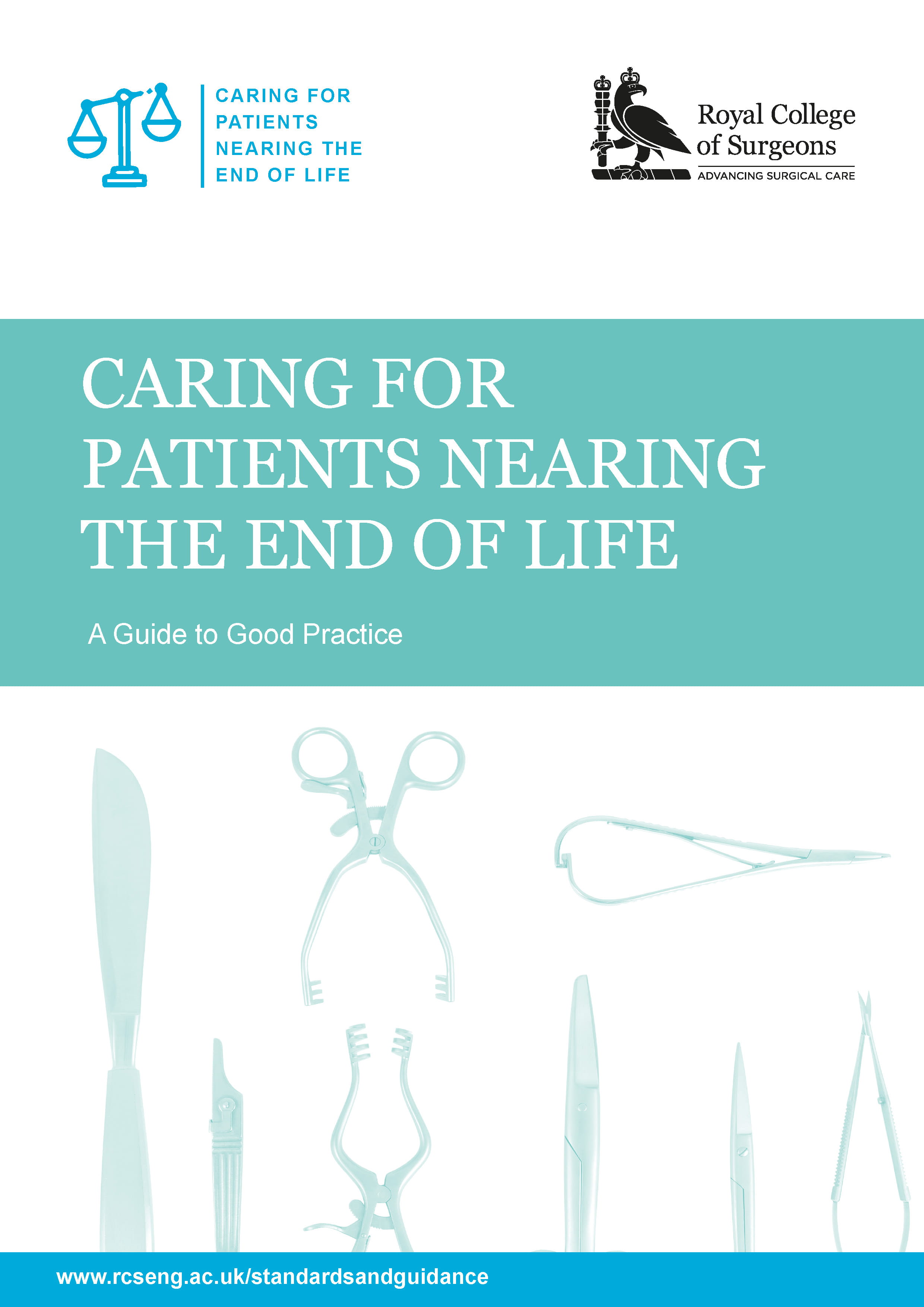Caring for Patients Nearing the End of Life

Communicating and making decisions with patients who are approaching the end of their life can be difficult and distressing, both for the patient and the medical team involved. This guidance provides advice and support for surgeons and surgical teams, including a framework to assist with sensitive but necessary conversations about end of life care.
The guide is the fourth in a series of documents that we have produced following the Montgomery ruling, aimed at supporting surgeons and the surgical team to help patients make informed decisions.
Consultant Vascular Surgeon and Vice President of the Royal College of Surgeons, Miss Sue Hill, said:
“We should all be prepared not to shy away from what can be a challenging conversation. We can help our patients to clarify their wishes and preferences and if they would like to make advanced care plans.“Providing end of life information to people can be very difficult particularly if they or their loved ones are not aware that their condition is terminal
“The guidance we have produced aims to help surgeons and the wider medical team present information to patients in a sensitive, realistic and compassionate manner to help give them as much information as possible in order to make their own very personal decisions.”
Who is this guide for?
If you are a surgeon, part of a surgical team, or a service provider, this guide will provide you and your team with valuable advice, guidance and support on many important aspects of end of life care.
What can I learn from this guide?
This guide covers:
- the steps surgeons can take to ensure that patients nearing the end of life experience a dignified death.
- a framework for communication and decision making
- the important care planning documents in use at the end of life
- how to work together as a team to ensure high-quality end of life care.

Download a PDF of the guidance here, or click the link below to read the guidance online.
Next: Foreword and Introduction >>
